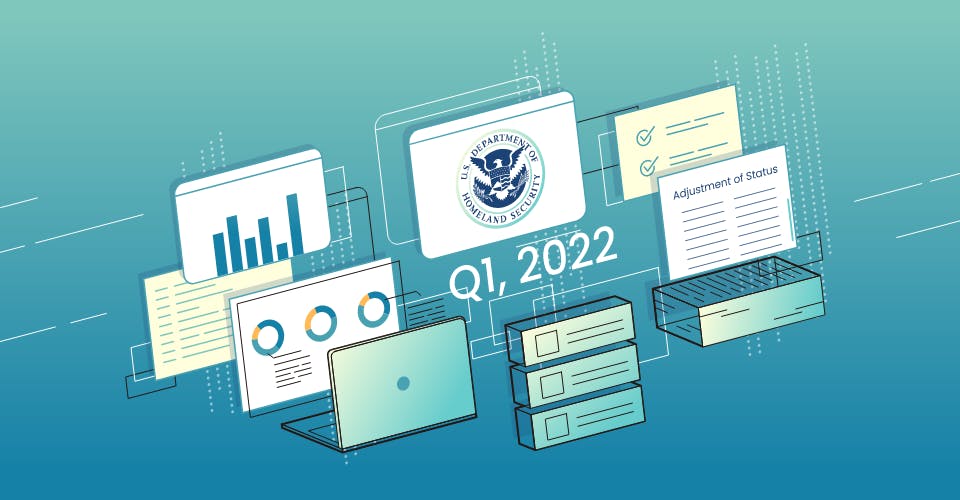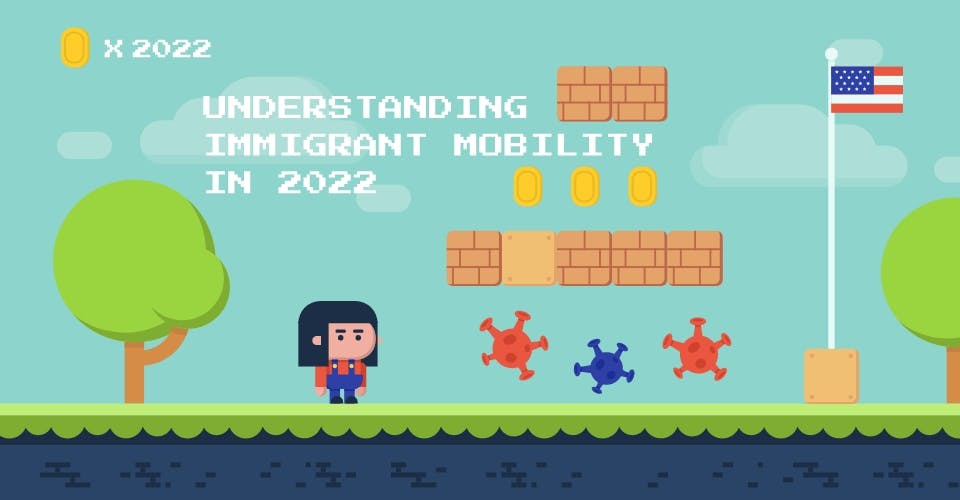In order to access this DHS report, please see the following link and scroll down to the attachment: https://www.dhs.gov/immigration-statistics/special-reports/legal-immigration.
The Department of Homeland Security (DHS) has issued its report for the first quarter (Q1) of 2022. This report helps to summarize and track the number of adjustments of status that were made in the United States in January, February, and March, as well as data of green cards issued for new arrivals. For reference, you can become a green card holder through the issuance of a green card after your I-485 application is approved while you are in the United States, or through a new arrival situation if you have been processed at a U.S. consulate or embassy abroad.
Based on previous findings, it is usually the case that more individuals are approved for green cards that are already living in the U.S. than from abroad.[1] This is also the case for Q1 2022, even with the current refugee crisis stemming from the war in Ukraine. The DHS report also helps to illuminate findings on who is being admitted as a legal permanent resident (LPR) based on regional analysis. For example, the report details who is coming to the United States, or receiving a green card from Asian, African, South American, European, or North American countries. These findings are significant because they also serve as a comparison between domestic based adjustments and the state of consular affairs in 2022 thus far.
Let’s take a look at some of the DHS findings from Q1:
Overall, as mentioned, there were more adjustments of status than new arrival green cards in Q1, 2022. In Q1, there were approximately 116,000 adjustments of statuses that were approved while there were approximately 111,000 newly admitted legal permanent residents in the U.S.
In terms of citizens from African countries, we can see that in Q1 there were more new arrivals than domestic based adjustments of status. There were only 6,716 green cards approved for citizens of African descent who were already based in the U.S., while there were approximately 12,000 newly admitted citizens from African countries (the DHS does not differentiate between sub-Saharan and North African countries in their data points).
The opposite is true for new legal permanent residents from Asian countries. For Q1, there were approximately 43,000 adjustment of statuses approve for citizens of Asian countries and about 37,000 newly admitted arrivals. This divergence from Asia and Africa show that there are more employment based immigrants in the U.S. from Asian countries who then go on to file an adjustment of status from within the United States, while there are generally more African citizens who are newly admitted via refugee status. This is overall consistent with trends from 2021 as well.
So far, one of the smallest shares of newly admitted arrivals are citizens from Europe. So far, the U.S. has admitted hundreds of Ukrainians to the country, however almost none of these individuals are eligible for legal permanent residence in the United States. In Q1, there were approximately 10,000 adjustment of status approvals for citizens from European countries residing in the United States.
The top five countries of non-citizens living in the U.S. who had an adjustment of status approved in 2022 Q1 were China, India, Mexico, the Dominican Republic, and El Salvador.














